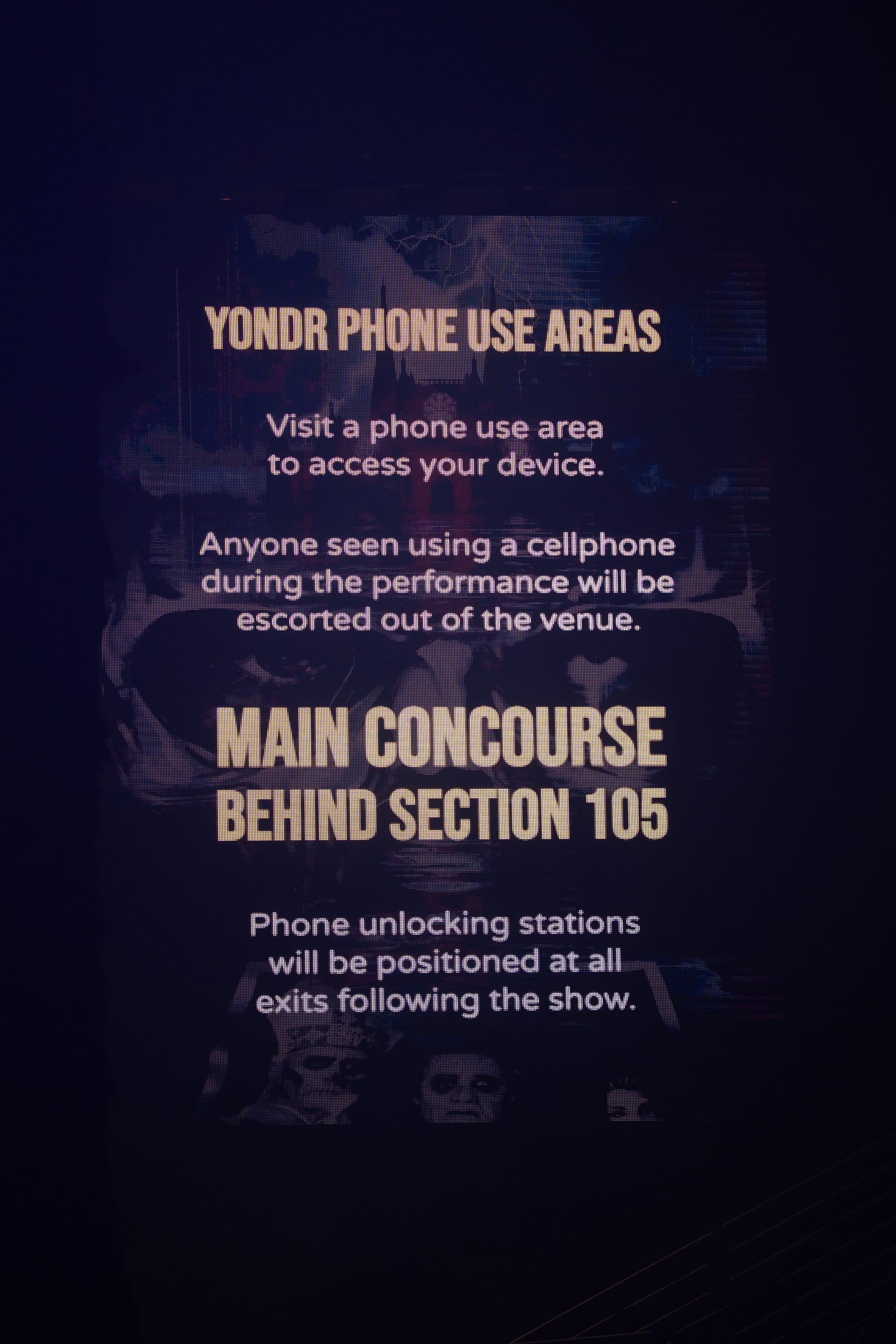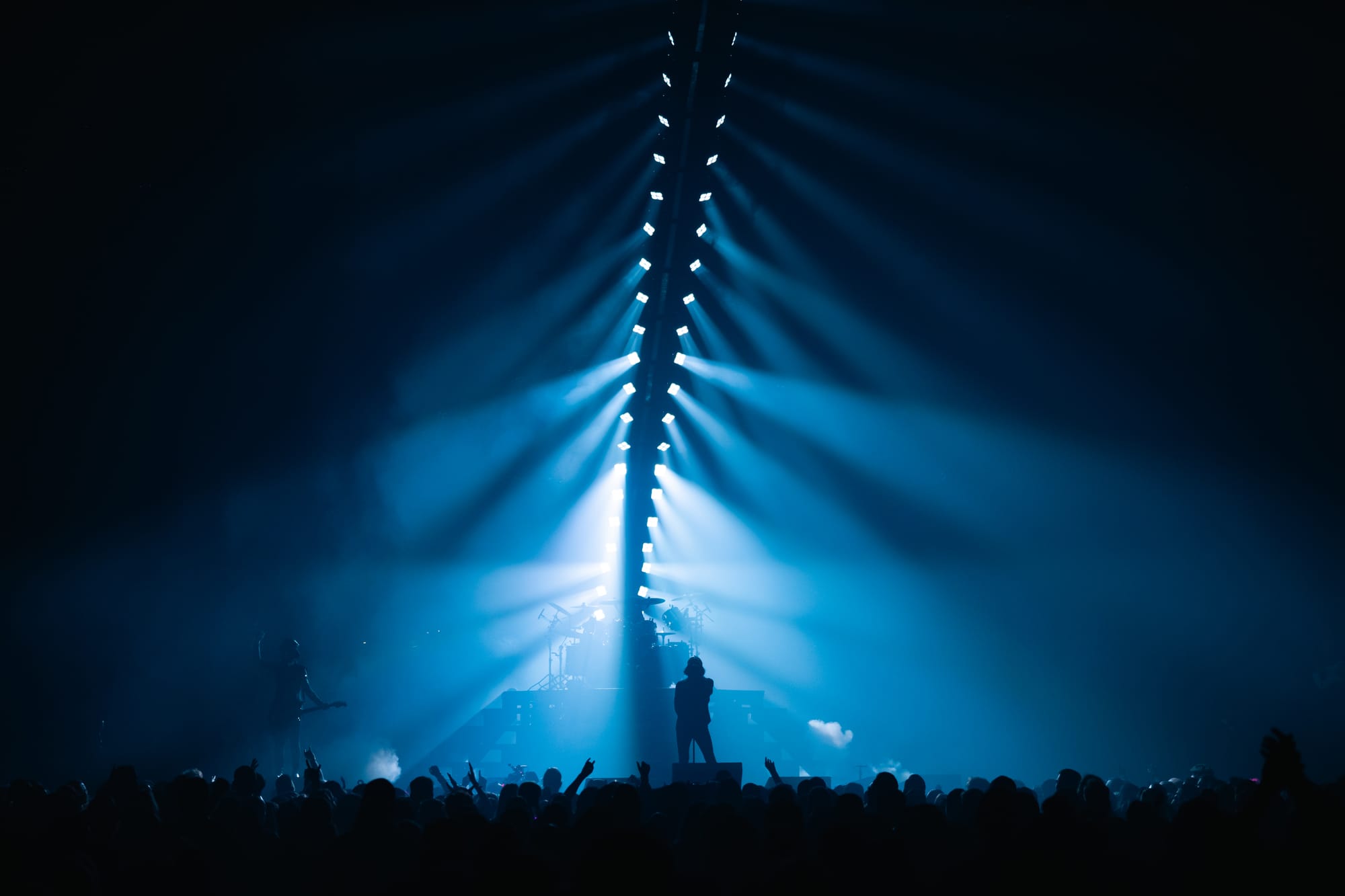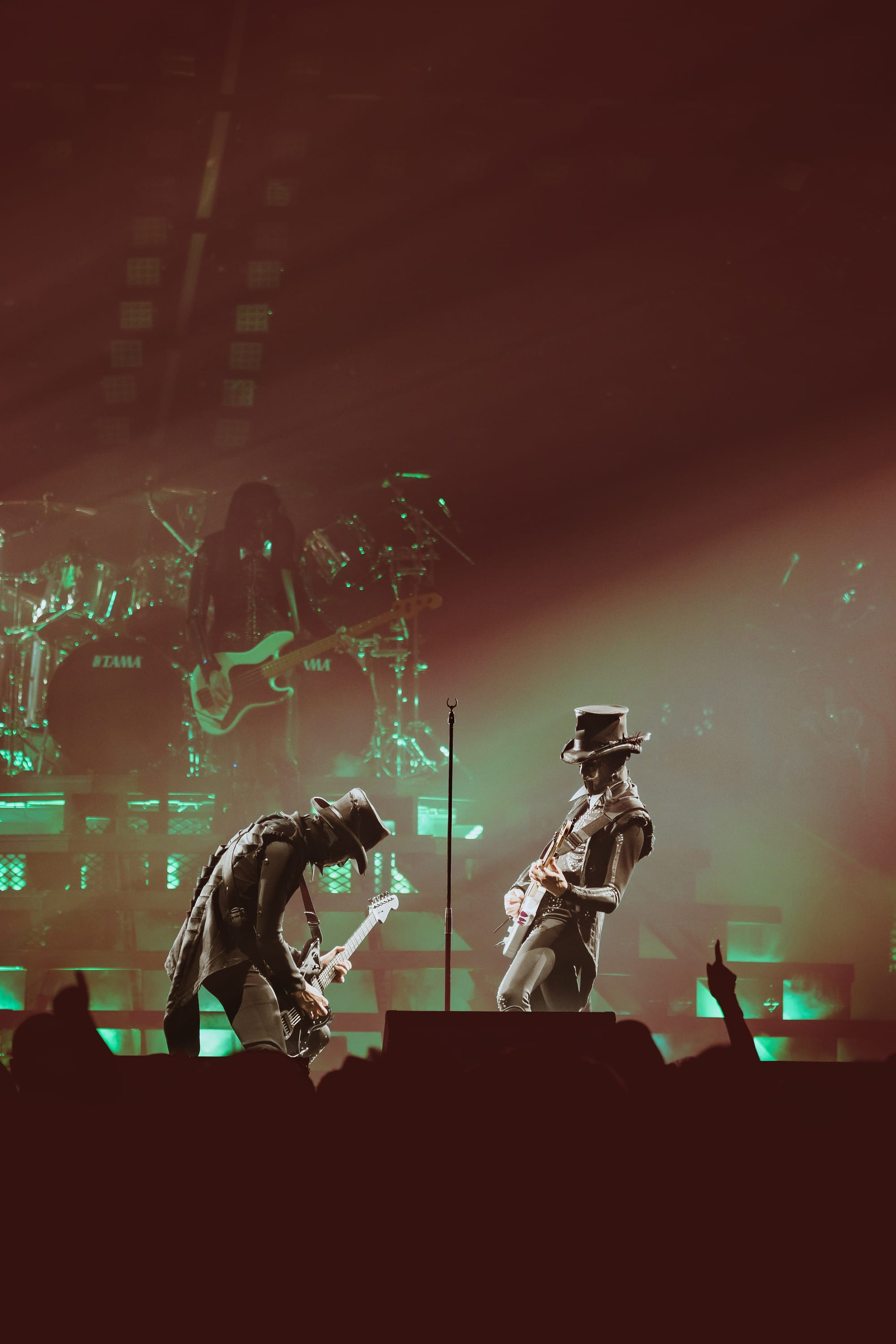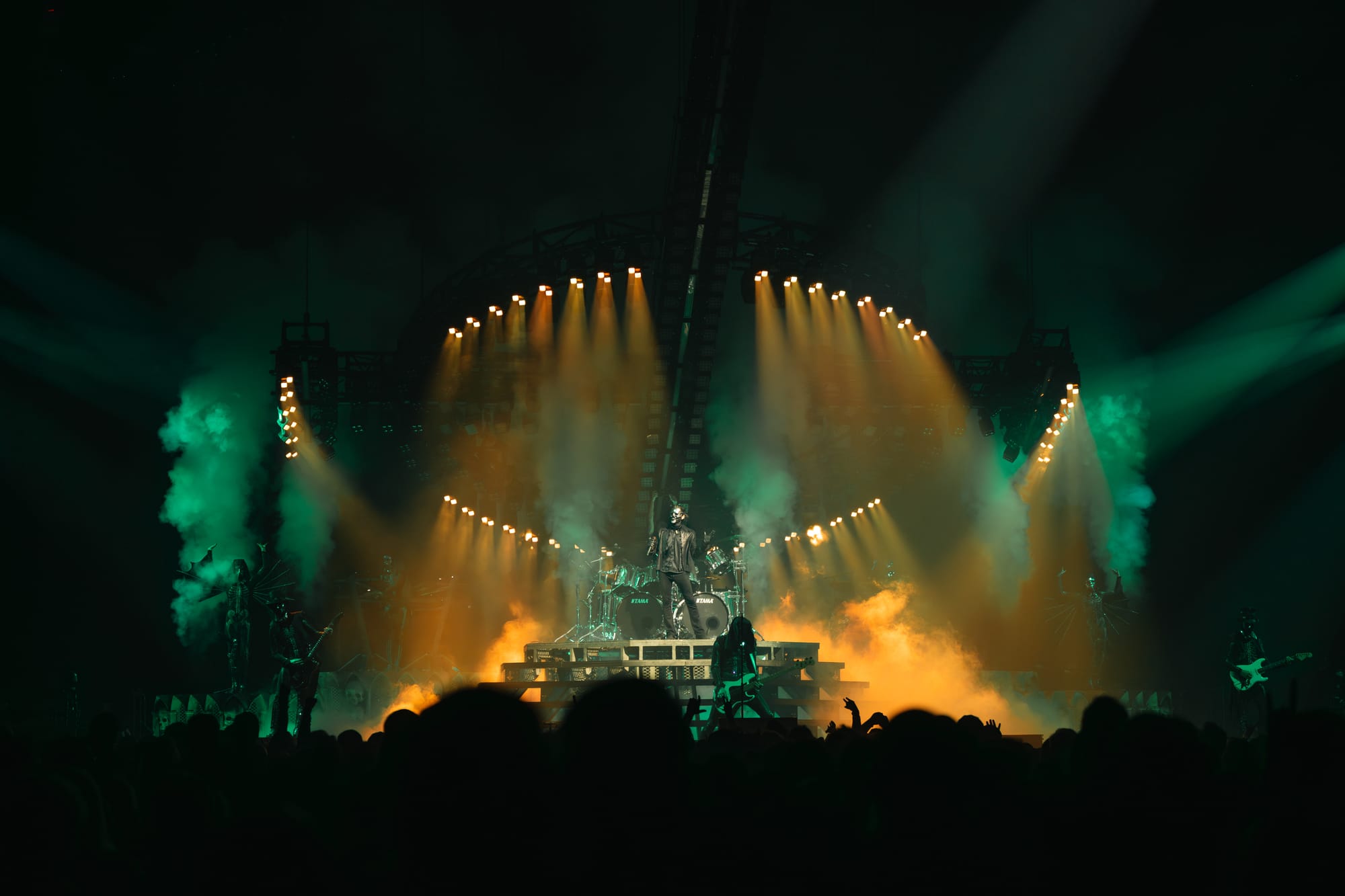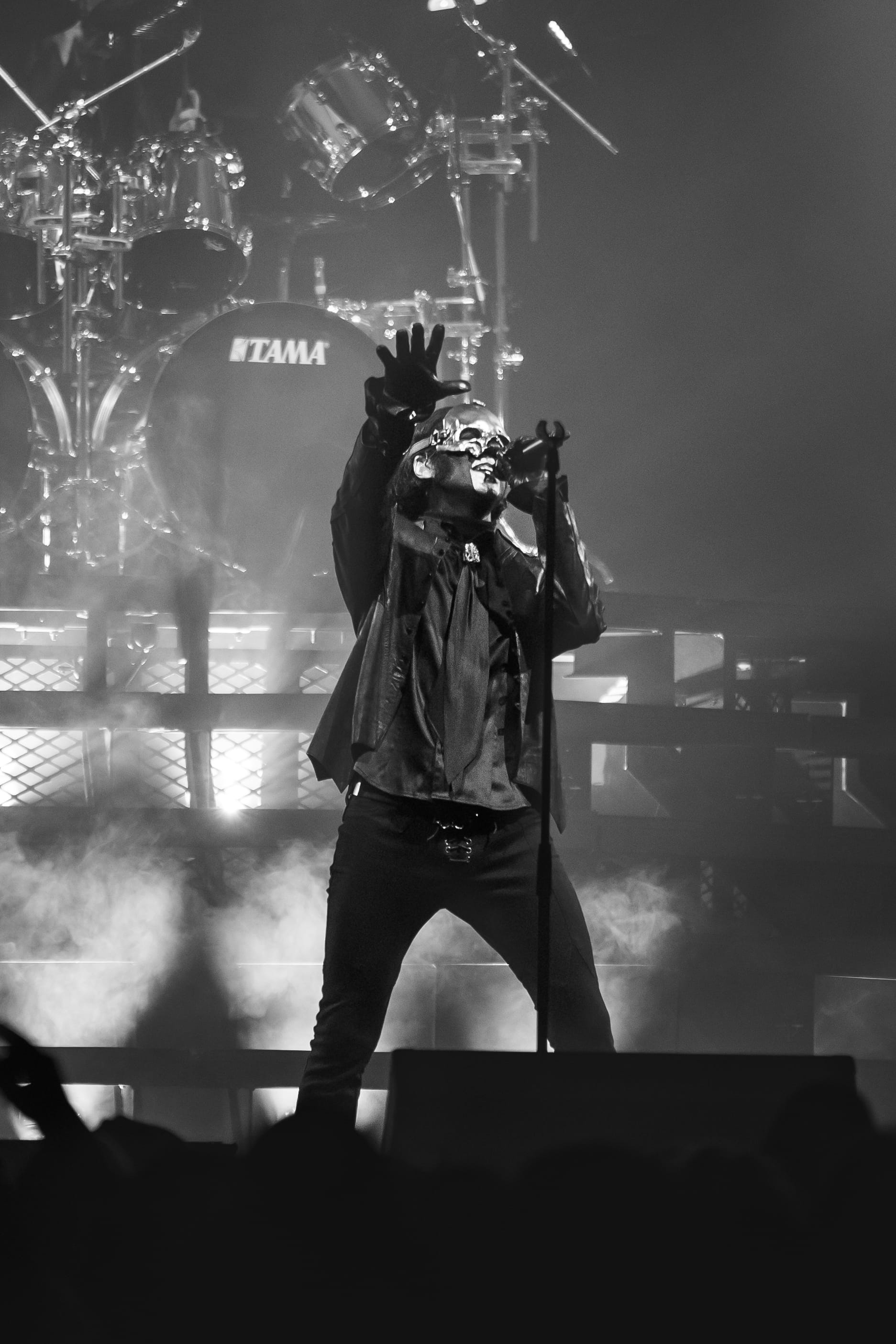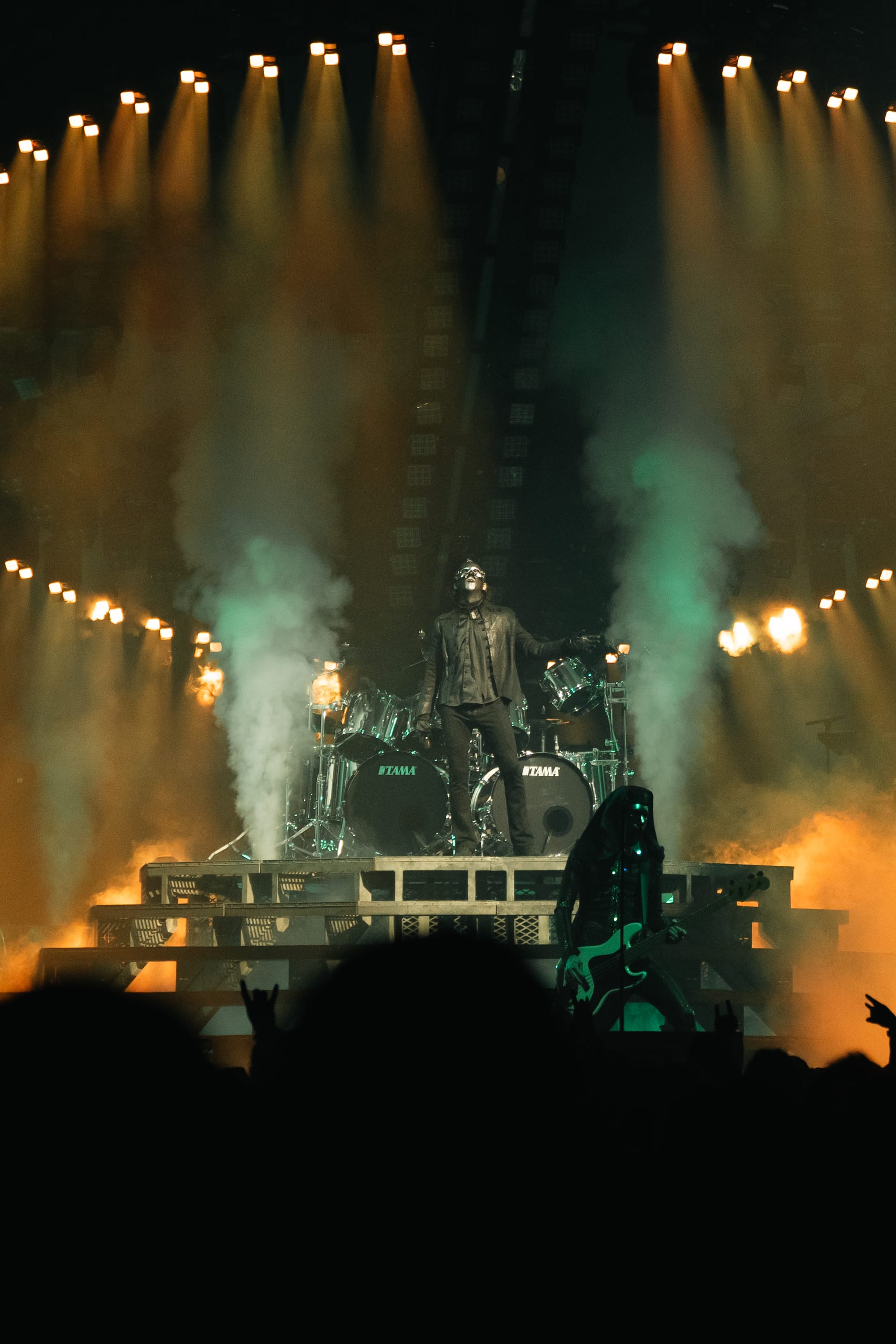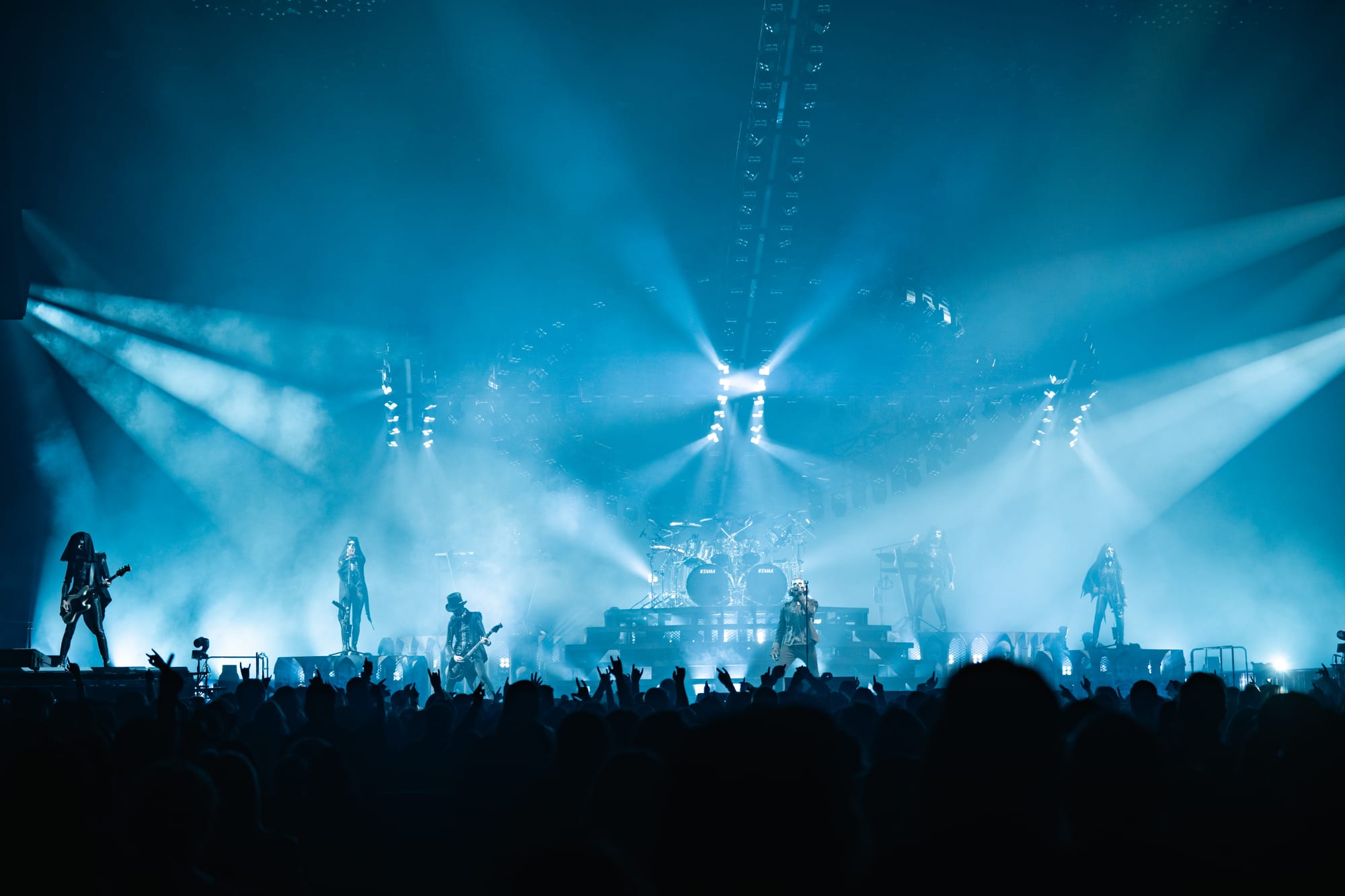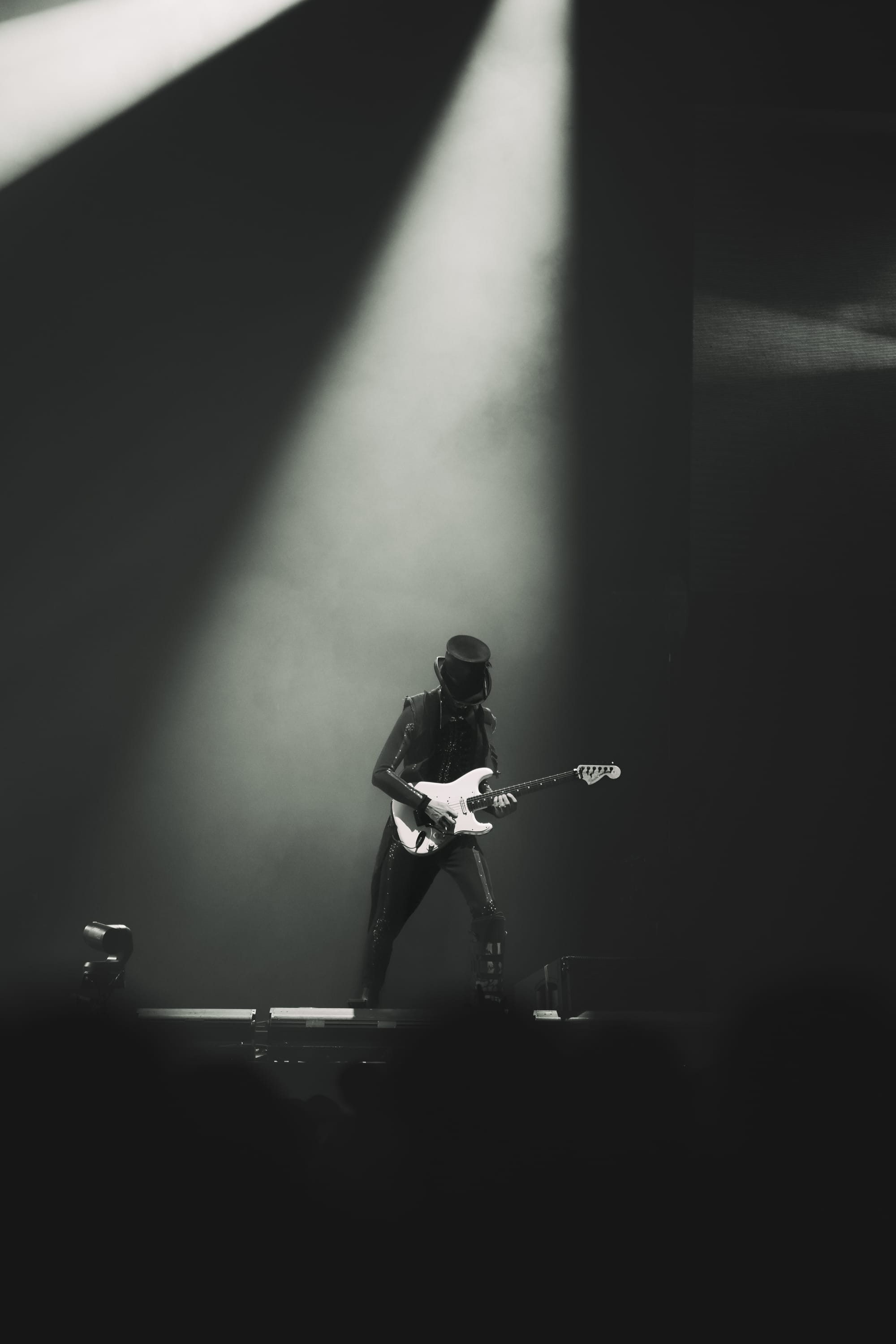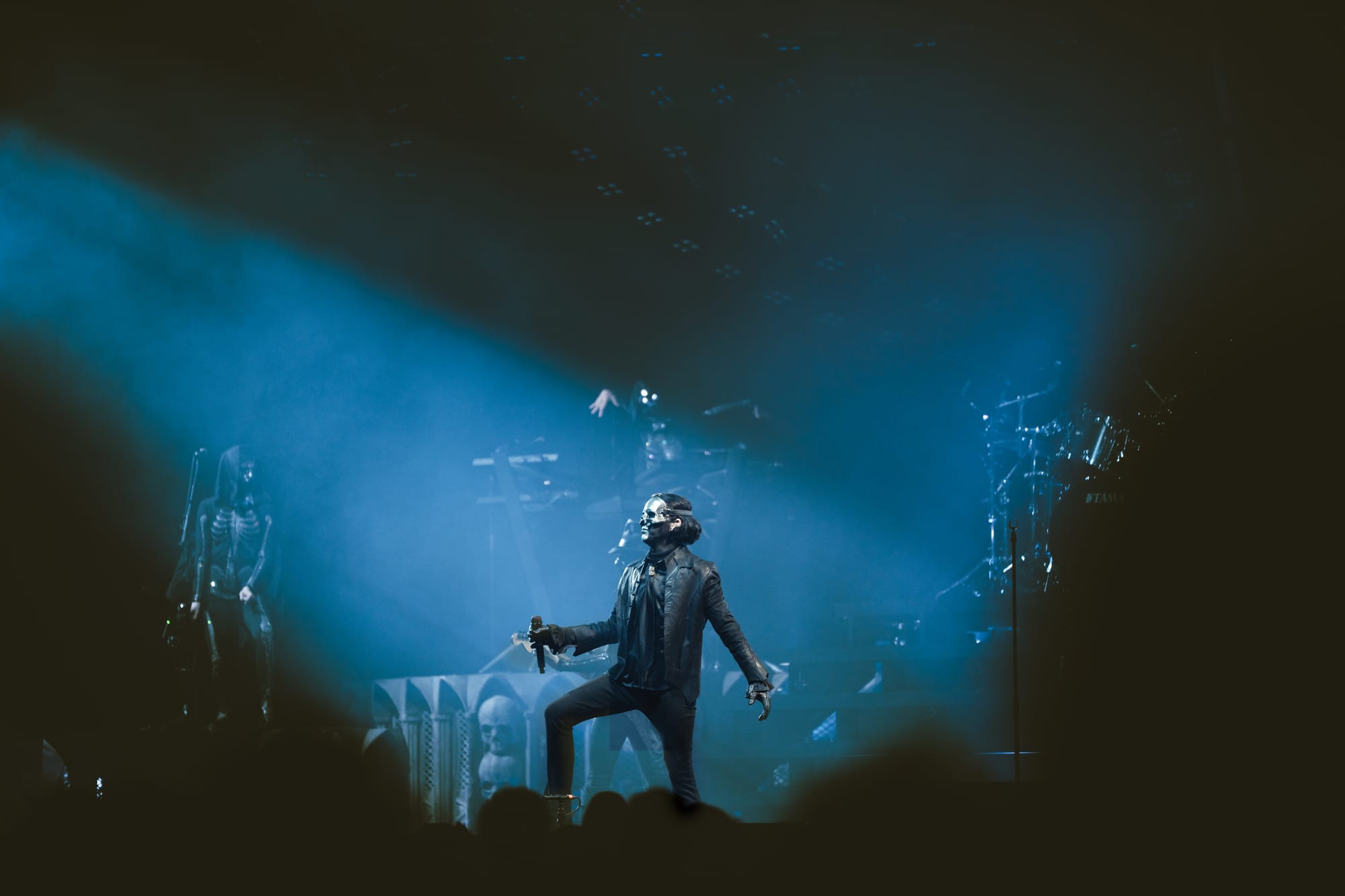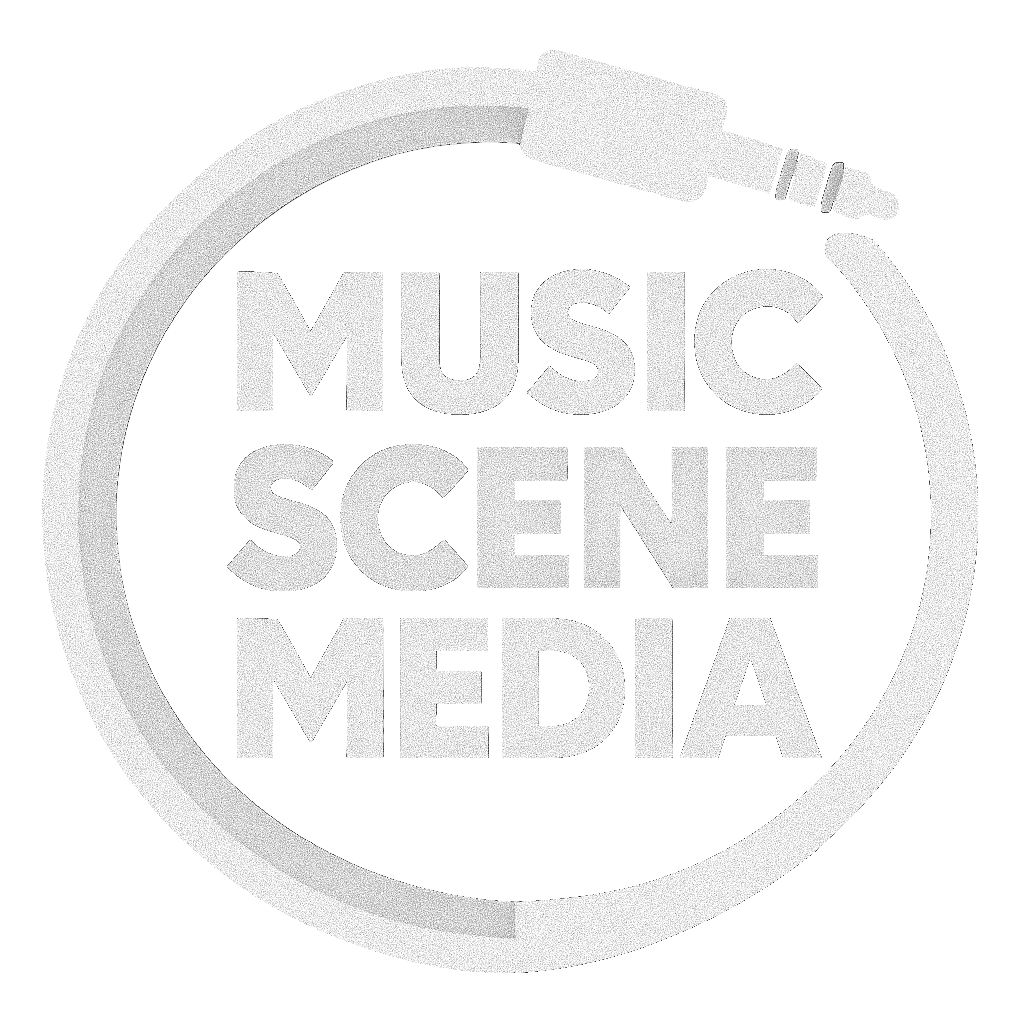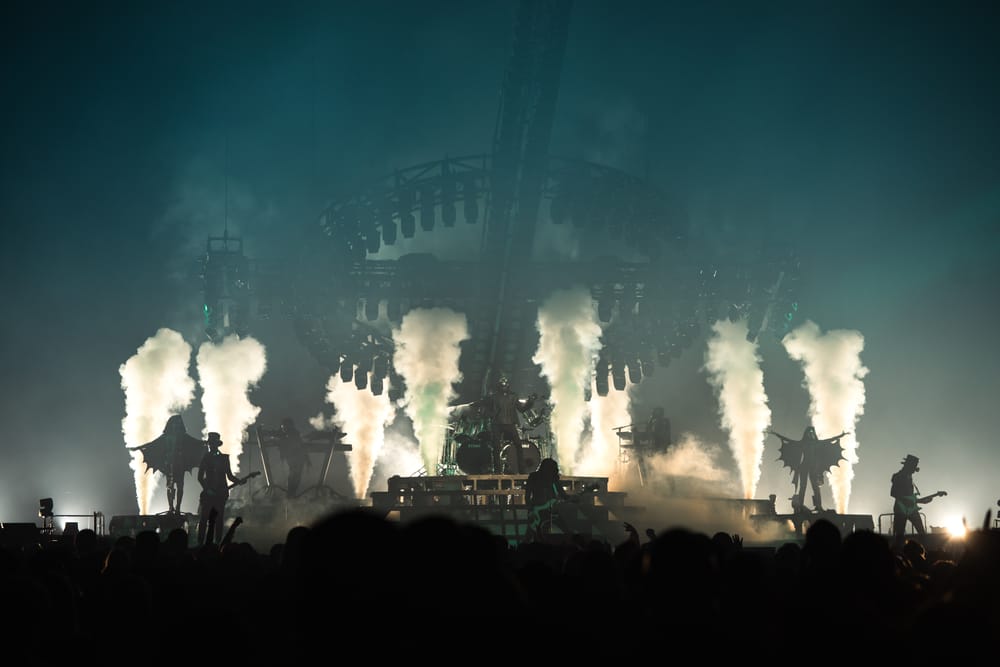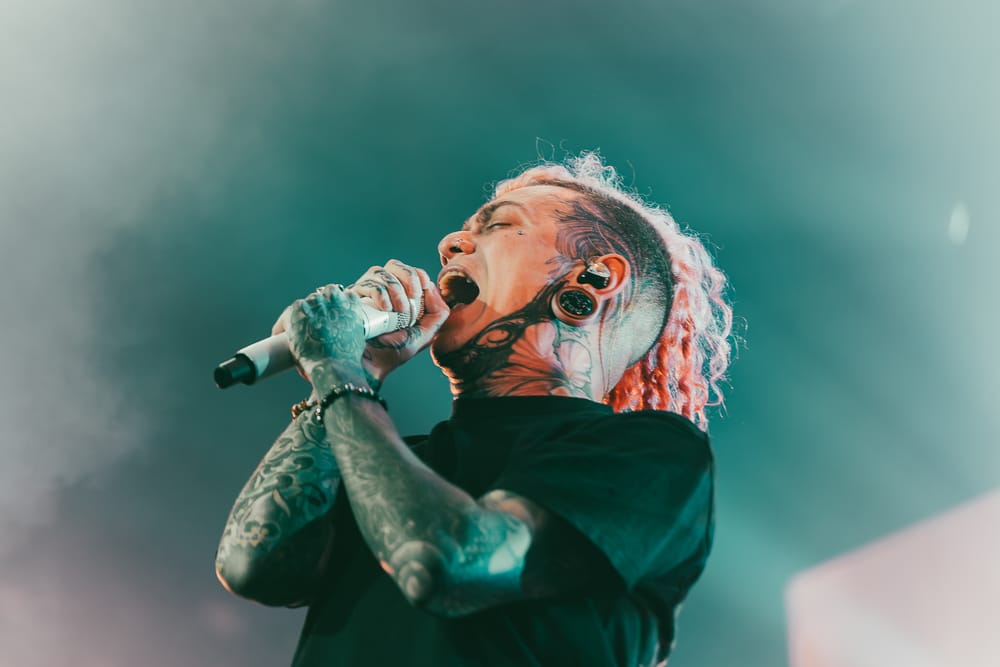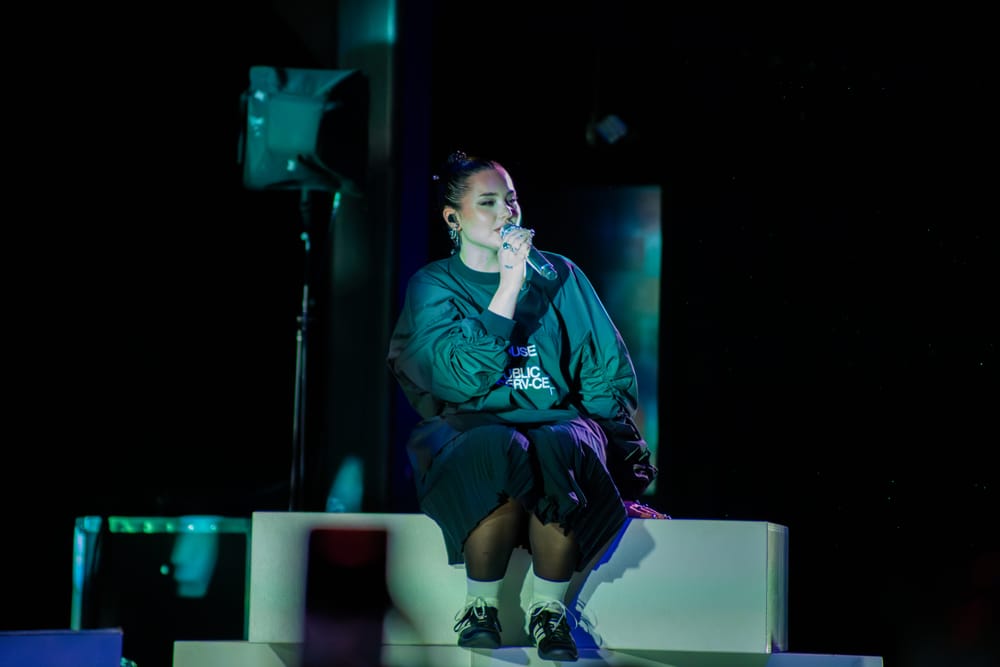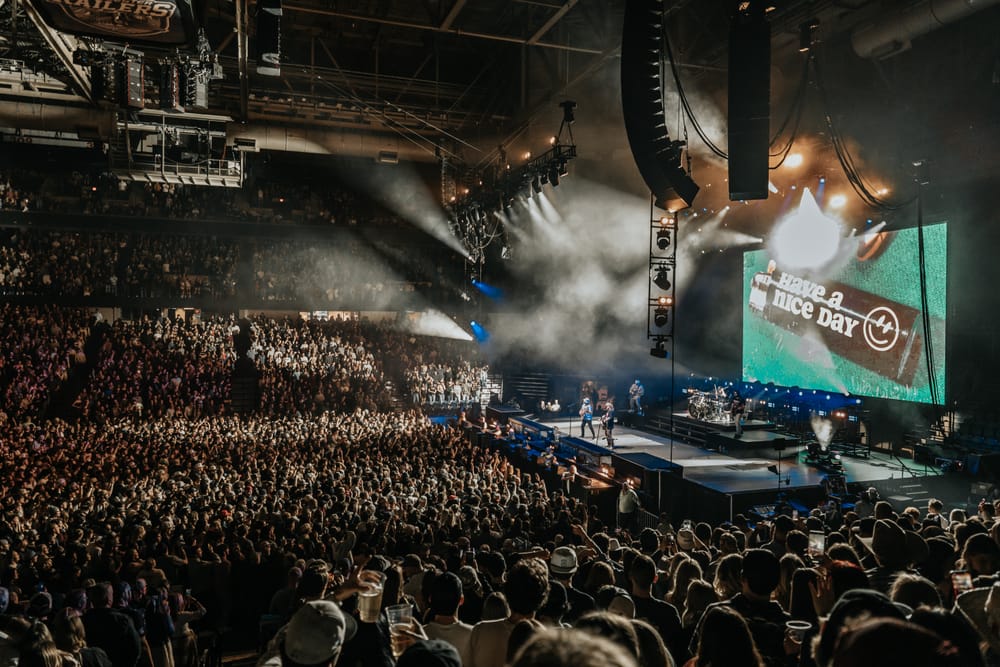The Swedish theatrical rock band Ghost is on a world tour with 55 shows across 17 countries, and Omaha’s CHI Health Center was buzzing as fans poured in for their stop on The Skeletour. Before the show even began, you could tell that this was set to be a spectacle. No phones were allowed in the venue, no support acts, and fans poured in dressed in elaborate costumes, face paint, and platform boots. A gothic aura filled the arena, and while you'd expect heavy guitar riffs or metal pounding through the speakers while the crowd got settled, it was actually classical music echoing through the arena instead. It built a calm, dramatic, and almost theatrical setting to build anticipation for the show to come.
Ghost is equally as known for their unique genre-bending blend of hard rock, metal, pop, and synth as they are for the lore they have created around the band. The band’s performances are described as rituals and often use shocking imagery to explore themes of corruption, power, and control (especially in religion). The lead singer, a character portrayed by Tobias Forge, takes on a new identity with each album cycle, denoted by a number. He uses each Papa persona to represent a new chapter in Ghost’s evolution, both musically and thematically. In this particular album/tour cycle, he is known as Papa V Perpetua, backed by a band of 8 nameless and faceless ghouls who represent the elements (fire, water, wind, earth, etc.). The ghouls and ghoulettes never speak or break character, and the band as a whole is recognized as a "Clergy" leading a rock-n-roll cult.
While these characters are a huge part of the band’s persona, the lore goes deeper yet. Back in 2008, an organization called The Clergy initiated the Ghost project. The goal of the project is to take down churches, recruit powerful individuals, and infiltrate the highest positions of society. Papa Emeritus was chosen to be the leader in the first era (Opus Eponymous era) of the Ghost project in 2010. Not much is known about him; he was an old man, quite evil, with a strong stance and willing to spread the message of Satan. Even though he had a good run, he did not reach the heights that the Clergy wished for.
Each album cycle there is a new figure chosen as Papa Emeritus, much like a new pope being appointed. After Cardinal Copia (his prior identity) led the band during the Prequelle era, which was themed around plagues, death, and the fall of civilization, he was unexpectedly promoted to Papa Emeritus IV at the final show of the 2018 tour. In past lore, each Papa was either killed off or ceremonially removed, often humorously or violently. Copia's survival and promotion marked a major shift in the Clergy’s narrative direction.
As the lights finally dimmed and a massive kabuki curtain full of rips to allow light shine through hung across the stage, a voice rang out over the PA: “Introducing the best band of all time… GHOST!” …And with that, the curtain dropped and the show officially began.
From the moment the self-proclaimed “Clergy” stepped on stage, it was clear that Ghost is a band that knows how to put on a show. The stage was taken over by over-the-top costumes and a stage presence that feels larger than life. The funny part is, while they look like a straight-up heavy metal band, their sound leans more into a rock sound reminiscent of something of the 80s. The Impera album brought the band wider mainstream appeal, showcasing a more polished sound with influences from artists like Queen and Def Leppard. It catches you off guard in a good way. With the combination of flashy, dramatic visuals with music that’s catchy and accessible, I could see why they have gained such a loyal following
The show started with a new song, "Peacefield." Thematically, the song is a meditation on hope, historical trauma, and rebirth. “Peacefield” is the thematic gateway to Ghost’s Skeletá era and the arc of Papa V Perpetua, the incarnation of the band's frontman. It represents a pivotal evolution in Ghost’s lore: the transition from the institutional, performative control of Papa Emeritus IV to a more introspective, spiritual, and personal chapter. The set continued to include over 20 songs, including old familiar fan favorites and new tracks. While all were enjoyed thoroughly by the crowd, the encore included the band’s biggest hits, "Mary on a Cross," "Dance Macabre," & "Square Hammer," which were anticipated by the fans all night.
To highlight, songs such as “Monstrance Clock,” "Mummy Dust," and "Mary on a Cross" had the best crowd interaction of the night; to be more specific, "Mummy Dust," a song off their album Meliora, brought the saying “old as mummy dust” to life. At the climax of the song, when Papa sings the line “my Mummy dust, in God we trust, my Mummy dust,” the production shot fake money that had Papa’s face in the center of the bill with the saying “In Mummy dust we trust,” which whoever was lucky enough to collect has the best memorabilia of the show.
In addition to the powerful range of the music journey, the production matched its intensity. Easily one of the best I've seen in a long time. The lighting design was insane. In the ceiling the lights were arranged in the shape of their famous “Grucifix” logo, which is essentially an inverted cross, also known as a St. Peter's Cross. Unlike traditional inverted crosses, which can symbolize anti-Christian sentiment, this version features a prominent stylized "G" embedded within the cross itself. All of the production, from the smoke and cryo effects to the backup singers to the ceiling rigs, took things up a notch and really pulled the whole arena into their world. It felt like a rock opera built for stadiums.
It wasn’t just the stage lights — every part of the stage itself was part of the performance. Every inch of the stage was intractable, such as the large steps in the middle of the stage, which Papa used as an overlook to the crowd. Each side of the stage also had risers that extended to the crowd. These allowed the Nameless Ghouls to step forward and engage with the crowd, taking the spotlight while the rest of the band seamlessly prepared for the next part of each song.
As the performance continued, Ghost did the unexpected and pulled the curtains on hidden LED panels that showed stained glass art all throughout the set until the end of “Year Zero,” where unexpectedly the glass shattered and a loud bang was heard, which was not just pyro but fireworks going off. The crowd burst into cheers as no one saw it coming.
Going back to “Monstrance Clock,” this was the song that really made me resonate with the performance. The moment that still stands out was hearing the whole crowd sing back the ending. After Papa kept going back and forth singing and handing it down to the fans to sing, it got louder and louder. Until the very end, where the song continues but it's just the choir part, “Come together, together as one,” you could hear the whole arena sing along. The goosebumps I had were not just from hearing my favorite song but from how seamlessly Papa picked it up again and just stood there in amazement.
What stood out for me was the fact Ghost went with the whole “no phone” policy. I was a bit skeptical at first, but after witnessing all the theatrics, surprises, and the sheer quality of the performance, it made perfect sense. Ghost’s show felt like part concert, part theatrical production—something that demands your full attention in the moment, not through a screen. Their energy and visuals made it something entirely its own. Whether you're a longtime fan or totally new to their music, it was an experience that pulled you in from the moment the doors opened. They might not sound like you’d expect based on their look…but that’s half the fun. And if you ever get the chance to catch them live, don’t miss it.
